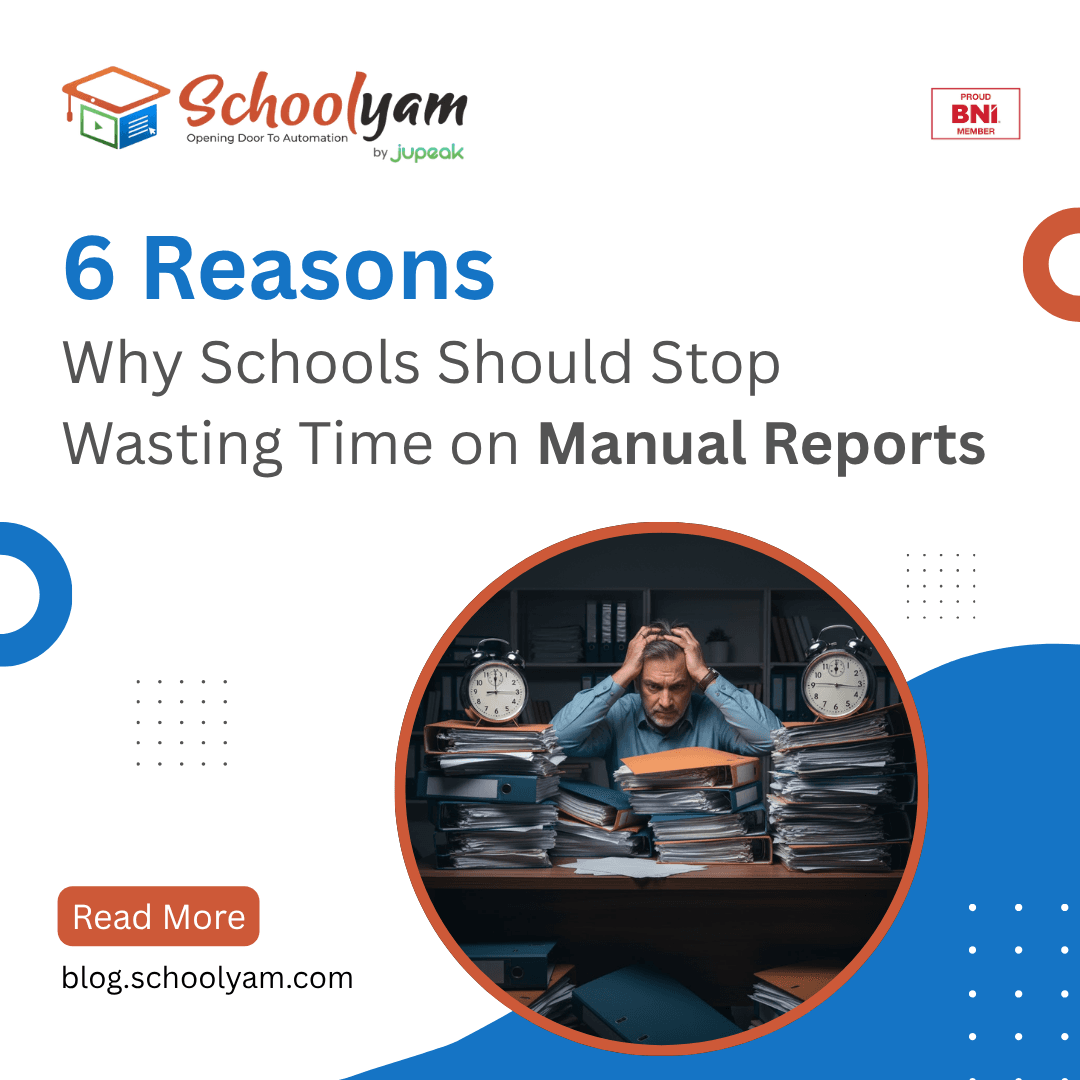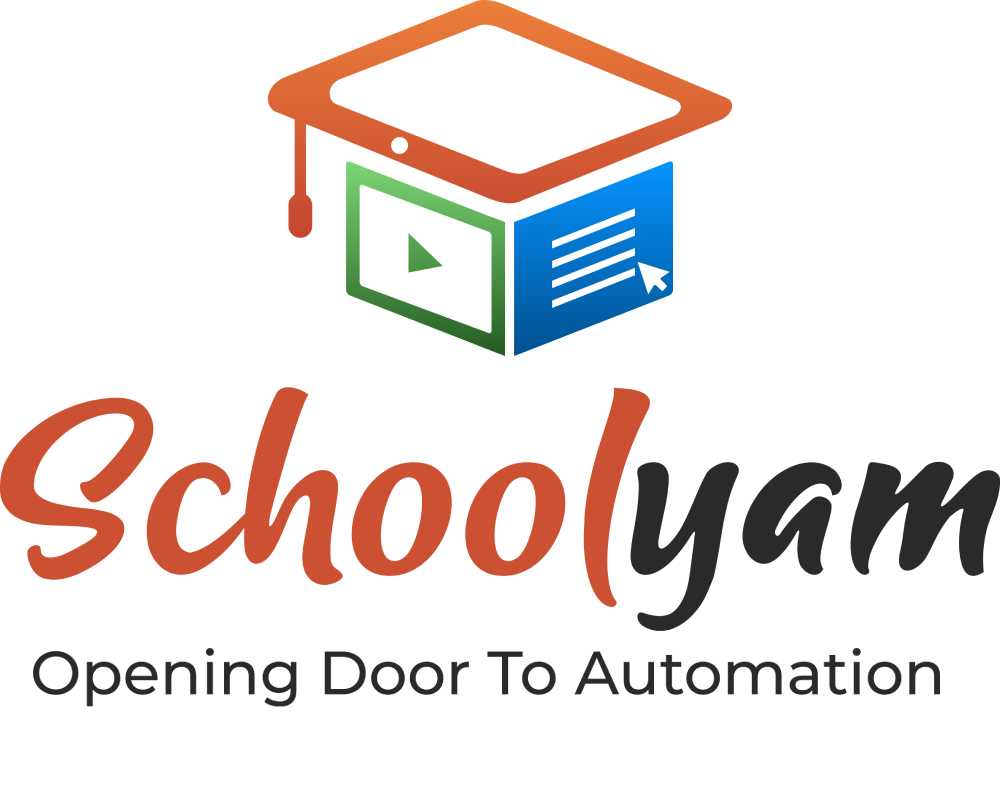
Introduction
6 Reasons Why Schools Should Stop Wasting Time on Manual Reports. In today’s fast-paced education environment, efficiency matters just as much as academics. Yet, many schools still spend 15–20 minutes just to generate a single report. Now imagine preparing 10–12 such reports in a single day. By the end of the month, schools end up losing countless hours that could have been invested in students, teachers, and overall growth.
If your school is still struggling with slow or outdated reporting systems, it may be time to reconsider. Here are seven strong reasons why schools should move away from manual and time-consuming reporting.

Manual Reporting Consumes Precious Time
School leaders and administrators already manage multiple responsibilities—from academics and events to parent communication and finances. Adding long hours of report generation to this workload only increases pressure. When a simple report takes 20 minutes, staff productivity is lost, and principals are left waiting for updates instead of leading the school forward.
Too Many Steps Create Unnecessary Frustration
Older systems often involve endless clicks, multiple screens, and complex navigation to generate a single report. This not only makes the process inefficient but also demotivates staff who must repeat the same steps daily. A complicated workflow for such a basic task results in frustration and disengagement, which can impact morale and performance.
Increased Risk of Errors and Inaccuracy
Reporting is more than just a routine task—it forms the foundation for key school decisions. However, manual reporting increases the chance of errors. Data duplication, outdated figures, and human mistakes can lead to inaccurate reports. These inaccuracies may affect academic planning, budgeting, and even communication with parents, where accuracy is critical.
Delays in Decision-Making
Schools today need to make quick, data-driven decisions. But when reports take too long, principals are forced to delay critical actions. Whether it’s planning fee collections, monitoring student performance, or managing resources, slow reporting slows down the entire decision-making chain. In an environment where agility is key, such delays can hold the school back from progress.
High Staff Dependency
In many schools, principals depend heavily on staff members to prepare and deliver reports. This dependency can cause bottlenecks, especially if staff are busy with other tasks. Teachers and administrative staff end up spending more time on data entry and less time on meaningful activities like teaching, mentoring, or supporting students. Reducing this dependency not only speeds up reporting but also frees staff to focus on core responsibilities.
Growth Activities Take a Backseat
When schools invest too much time in reporting, growth-related activities are sidelined. Admission planning, parent engagement, academic improvements, and innovation require time and attention. If energy is consumed by preparing manual reports, there is little left to invest in long-term growth strategies. The opportunity cost of this lost time can be significant.
Smart ERP Solutions Simplify Reporting Instantly
Modern ERP systems are designed to address these challenges. With a smart ERP, schools can generate reports in just a few clicks, with data ready in seconds. Reports are accurate, well-structured, and accessible in real-time. This reduces workload, removes dependency, and empowers principals with instant insights. Ultimately, smarter reporting translates into smarter decision-making, which directly benefits school growth.
A Smarter Way Forward
6 Reasons Why Schools Should Stop Wasting Time on Manual Reports. Reporting should never feel like a burden. It should empower principals and administrators with clarity and insights that guide school growth. Schools that continue to depend on outdated methods end up wasting valuable time, creating errors, and delaying decisions. On the other hand, schools that adopt smarter solutions simplify daily operations and free up time to focus on what truly matters—students, teachers, and growth.
6 Reasons Why Schools Should Stop Wasting Time on Manual Reports.



